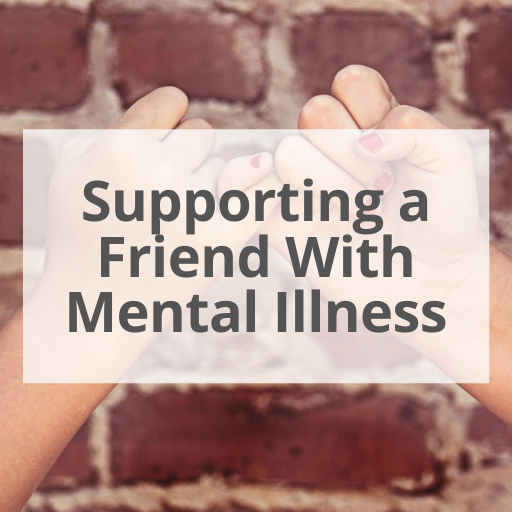30th Jul 2020
Supporting a Friend With Mental Illness

Building and maintaining healthy friendships is an important part of an individual’s journey to improved mental health.
Unfortunately, it can be difficult to know exactly how to support friends who are struggling. Here, we have rounded up six simple tips to help you support your friend.
Firstly, try to encourage communication and create a safe space for them to discuss how they feel. People who are dealing with a mental illness may not always be forthcoming in talking about their emotions. Therefore, be prepared to start the conversation rather than waiting for them to come to you. You can create a communication safe space by ensuring it is somewhere they are comfortable, and with few distractions around.
When you are talking with your friend about their mental health, try not to make assumptions or diagnose them. Their diagnosis and subsequent solutions are areas best left to their healthcare professionals.
When communicating with a friend about their mental health, listen to what they are saying and validate their feelings. We recently did a blog post about the importance on empathy, which may help you understand how to be validating in what you say.
If your friend is not already seeking professional help, you may want to encourage them to visit their GP. Try to remain supportive of their choices, whether they decide to engage in counselling or wish to try medication alongside therapy sessions. Different approaches work for different people, and what worked for your brother’s girlfriend’s cousin, may not work for your friend.
Above all these tips, one small, but infinitely supportive, act you can do is check-in with your friend on a regular, unprompted basis. Some people who are currently struggling with their mental health may not feel able to reach out to people. However, a simple text (‘Hi, how are you? x’) may help them from becoming isolated or lonely. It will also remind them that people care for their wellbeing.
Finally, you must remember to know your own boundaries and take care of your own wellbeing. Sometimes it’s not in our power or best interests to help someone. In cases like this, you must be mindful of maintaining your own mental health first and foremost.

